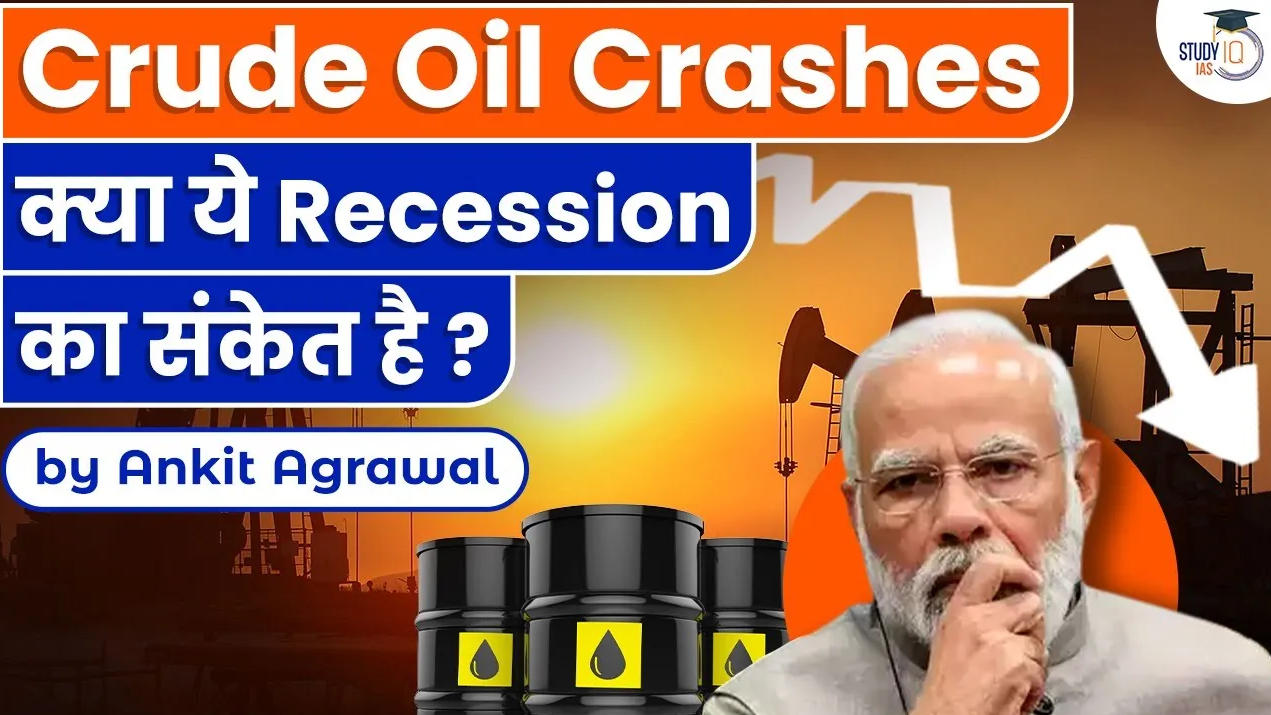Table of Contents
What’s happening?
- It is not common for analysts to agree on a price target for a commodity or a stock,
- But this time around, the targets for crude oil vary in between the wide range of $65 a barrel and $380 a barrel.
- Last week, global brokerage firm JPMorgan shocked everyone as its report estimated that global oil prices could reach a “stratospheric” $380 a barrel if US and European penalties prompt Russia to inflict retaliatory crude-output cuts.
- And on Tuesday, Citigroup came out with a report saying that crude oil could collapse to $65 a barrel by the end of this year and slump to $45 by end-2023 if a demand-crippling recession hits the global economy.
- “For oil, the historical evidence suggests that oil demand goes negative only in the worst global recessions.
- But oil prices fall in all recessions to roughly the marginal cost,” Citi analysts said in a note.
Oil below $100
- Oil prices tumbled Tuesday with the US benchmark falling below $100 as recession fears grow,
- Sparking fears that an economic slowdown will cut demand for petroleum products.


- The plummeting price action comes as Saudi Arabia announced a price hike for all its crude grades in August to its prized market, Asia.
- Saudi Arabia’s price hike comes mostly as expected by the market on strong refining margins and expectations of strong demand.
- But while Saudi Arabia lifted the August price for its flagship crude grade to Asia, Arab Light, by $2.80 per barrel, the price of Brent and WTI crude fell sharply.
- Saudi Arabia sets the pricing trend for most of the Middle Eastern oil exporters and is typically seen as a bellwether for the state of the oil market.

- The world’s major economies including the United States are heading towards a “stagflationary debt crisis”, which may lead to the equity market crashing by around 50%,
- Warned economist Nouriel Roubini, who is known as ‘Dr Doom’ for his forecast of the 2008 global recession.
- The recession into which the US is likely to be plunged is worse than the previous financial crises,
- As the country’s economy is currently showing symptoms akin to the stagflation crisis of the 1970s as well as the crippling recession which was seen in 2008.
- While the US and global equities slide by around 35 percent in “plain-vanilla recessions”, the drop would be more severe in the upcoming financial crisis due to the combined effect of soaring inflation and debt crisis, Roubini claimed.
- “Because the next recession will be both stagflationary and accompanied by a financial crisis, the crash in equity markets could be closer to 50 percent,” ‘Dr Doom’ wrote.
Current inflation is not transitionary
- Most central banks and fiscal authorities around the world must admit their mistake of considering the current round of inflation as transitionary, the economist said.
- Roubini further noted that a section of the analysts are “dangerously naive” in considering that the impending recession will be mild and short-lived.
Q) If the interest rate is decreased in an economy, it will?
- Decrease the consumption expenditure in the economy
- Increase the tax collection of the Government
- Increase the total savings in the economy
- Increase the investment expenditure in the economy
Latest Burning Issues | Free PDF























 WhatsApp
WhatsApp